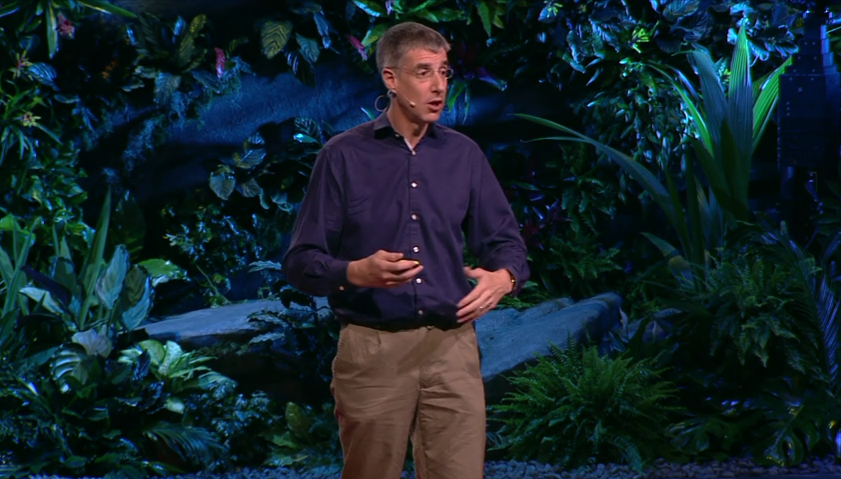(单词翻译:单击)
演讲文本
And the fundamental idea is you want to plan your movements so as to minimize the negative consequence of the noise.
话说回来,我们的基本思路是要找到一种动作方式,能够把杂音带来的负面影响降到最低。
And one intuition to get is actually the amount of noise or variability I show here gets bigger as the force gets bigger.
并且我们凭直觉就知道我在这里展示的杂音,或者说可变性随力的大小的增加而增加。
So you want to avoid big forces as one principle.
所以我们的原则之一就是避免施加太大的力。
So we've shown that using this, we can explain a huge amount of data -- that exactly people are going about their lives planning movements so as to minimize negative consequences of noise.
用这个原则,我们就能解释很多得到的数据--那就是人们在生活中有意安排动作方式来把杂音带来的负面影响降到最低。

So I hope I've convinced you the brain is there and evolved to control movement.
现在,我想我已经让大家相信大脑之所以存在是为了控制动作。
And it's an intellectual challenge to understand how we do that.
而且了解怎样做到这点是需要费一番脑筋的。
But it's also relevant for disease and rehabilitation.
不过同样具有相关价值的是在疾病和康复方面。
There are many diseases which effect movement.
有很多病症有对动作产生影响。
And hopefully if we understand how we control movement, we can apply that to robotic technology.
所以如果有朝一日掌握了人类控制动作的机制,我们就可以用到机器人技术中去。
And finally, I want to remind you, when you see animals do what look like very simple tasks,
最后我要提醒大家,当你们看见动物做些看似非常简单的动作的时候,
the actual complexity of what is going on inside their brain is really quite dramatic.
它们运行在大脑内部的真正复杂度其实是相当令人叹为观止的。
Thank you very much.
谢谢大家。
视频及简介
演讲简介:
神经学家Daniel Wolpert从一个出乎意料的前提谈起:大脑的进化不是思考或感觉的需要,而是为了控制身体运动。在这个有趣又不乏数据支持的演讲里,沃普特向我们简述人类大脑如何举重若轻地创造出灵活的身体运动姿态。


